Last updated on June 2nd, 2023 at 07:31 am
Did you read the first part of “My last days in the Church – Becoming an Atheist“? If you haven’t you might not fully appreciate this second part. Click here to read the first part of My last days in the Church. Read on if you already have.

Reasonability
The other component, logic, or, to put it more simply, reasonability, played a significant role in my conversion. The study of sound reasoning or persuasive arguments is known as logic. Most faiths offer justifications and explanations for why their faith is true when they attempt to evangelize. No matter how “spiritual” a person’s belief or claim may be, logic and reason must eventually be applied. Our brains are unable to resist. In our daily lives, we unconsciously apply the principles of logic, but for some reason, when it comes to faith, we find exceptions.
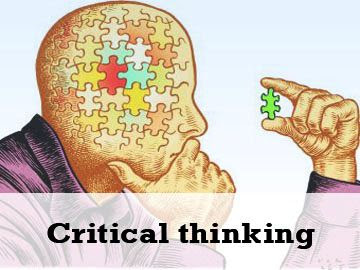
The law of contradiction, the law of the excluded middle, and the law of identity are the three fundamental rules of logic.
The Law of Contradiction
According to the law of contradiction, a statement cannot be both true and untrue or have the same property in both cases. The quality of heat or temperature is a straightforward example. A cup of coffee is hot if it’s, let’s say, 100 degrees Celsius. The same cup of coffee cannot be at 20 degrees Celsius and 100 degrees Celsius at the same time. As a result, the law of contradiction would be broken. Another illustration is that Ama is not married to Kofi, but Kofi is married to Ama.
Christianity breaks these laws in several different ways. The fact that God is all-powerful, all-knowing, all-loving, and other attributes, but there are also times when God was not all-powerful, all-knowing, or all-loving, strikes me as very noteworthy. The sovereignty of God is typical. God declares that there is no other god besides him in these passages.
Isaiah 45:5 – I am the LORD, and there is no other; there is no God but me. I will equip you for battle, though you have not known me.
Isaiah 44:6 – The LORD is Israel’s king and defender. He is the LORD of Armies. This is what the LORD says: I am the first and the last, and there is no God except me.
Deuteronomy 4:35 – You were shown these things so that you might know that the Lord is God; besides him there is no other.
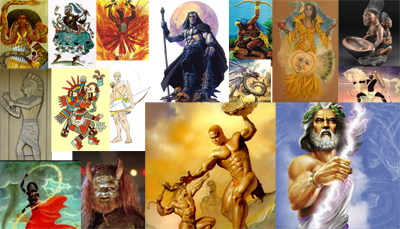
Then, it appears that the contrary is true in other verses. Let’s examine these two verses.
Exodus 20:3 – You shall have no other gods before me.
Exodus 23:13 – Now concerning everything which I have said to you, be on your guard; and do not mention the name of other gods, nor let them be heard from your mouth.
Is God acknowledging that other gods exist and even aware of their names?
Then again, other texts assert that there is only one God. There has been a breach of the law of contradiction.
One such way that some Christians break the law of contradiction is when they say things like “The Old Testament has been done away with. We are currently in a New Testament era.” But how is this possible when God’s word endures forever?


Numbers 23:19 – God is not man, that he should lie, or a son of man, that he should change his mind. Has he said, and will he not do it? Or has he spoken, and will he not fulfil it?
Malachi 3:6 – For I the Lord do not change; therefore you, O children of Jacob, are not consumed.
Isaiah 40:8 – The grass withers, the flower fades, but the word of our God will stand forever.
According to Matthew 5:17-18, Jesus reportedly remarked, “Do not think that I have come to abolish the Law or the Prophets; I have not come to abolish them but to fulfil them. For truly, I say to you, until heaven and earth vanish, not the smallest letter, not the smallest stroke of a pen, will vanish from the Law until everything is accomplished.
Some Christians will probably stop me at this point and claim that I am misusing or misinterpreting the Bible.
If I were to don my Christian hat, I would say, like the majority of conservative Christians, that the Holy Spirit is necessary in order to comprehend the Bible, exactly as a classmate did after reading part one of MY LAST DAYS IN THE CHURCH. Over 40,000 Christian denominations alone have different interpretations of the same doctrine, but they all operate under the same direction of the Holy Spirit. There are also other faiths that assert to be the exclusive paths to God. So, only one of these can be correct. But since they all assert that they are correct, I sometimes wonder why my neighbour once told me that I should never be a Muslim.


She had found out I had stopped attending church and called me over one day to find out why. Her comment will forever be ingrained in my mind. She said, “If you don’t feel like going to Presby, you can go to any other church—even Methodist. Presby and Methodist are sisters. But as for Islam, don’t think of going there.’ Her comment sickened me! The amount of revulsion in her eyes as she pleaded, “Don’t turn to Islam” was quite sickening. I wondered why not Islam, as both religions are based on faith. Well…
The Law of Excluded Middle (or Third)
It means that a statement is either true or false. Think of it as claiming that there is no middle ground between being true and being false. Every statement has to be one or the other. That’s why it’s called the law of excluded middle, because it excludes a middle ground between truth and falsity. In logic, the law of excluded middle (or the principle of excluded middle) states that for every proposition, either this proposition or its negation is true.

The Law of Identity
The law of identity states that each thing is identical with itself, i.e., a thing is what it is. In other words, a thing is nothing other than itself.


Confusion
Because I had now chanced upon a different course of interpretation which I thought more accurate than what I used to believe, I was constantly troubled within. Internally, it looked as though my whole life was a lie, that I had been lied to. I mean, here I was thinking that Matthew, Mark, Luke, and John wrote the Gospels when the authors of the gospels were not known. More confusion flooded my mind when I discovered that Christmas, Easter, and other Christian festivals were not biblical but were heavily influenced by pagan festivals. More puzzling is how the apostles and Jesus himself celebrated all biblical festivals except Christian festivals such as Easter and Christmas. The apostles and Jesus still observed the biblical festivals: Pesach (Passover), Shavuot (Pentecost), Sukkot (Feast of Tabernacles), etc. Didn’t they? Something was wrong.


To allay my confusion, I approached my pastor friend. Usually, after attending service at my church, Congregation of The Most Holy Trinity Presbyterian Church of Ghana located on the Spintex Tema Motorway connect road, I will dash to our neighbouring church, Ebenezer Methodist Church of Ghana, which is about a minute walk from my church. Their pastor was like a spiritual father to me. This day I walked into his office hoping to have all my fears allayed. As I sat in the comfy chair, I took in a deep breath before asking the Methodist pastor if the discoveries I had made so far were true or not. I thought to myself, “He’s a man of God, so he won’t lie to me. After narrating all my discoveries to him, he sat forward in his chair, smiled at me, and said, “Pee, do you know something? You are right. In fact, we learn this in bible school. ” The confusion within me almost exploded upon hearing his response, so I followed up with the question, “Why are we not taught this in church?” Again, smiling, as though he already expected my question, he quickly answered, “Your people” (referring to church members) are not even reading the bible. How much more studying this?”


I didn't entirely agree with his response.
Aren’t the leaders of the church responsible for what is to be studied in church? There was this period when my church designed the annual program to allow the youth wing of the church, the Young Peoples Guild (YPG), to give sermons during the main church service. A couple of my colleagues in the YPG had given sermons. One day, a church elder approached me, asking me if I was interested in delivering a sermon at the main church service. I didn’t hesitate to say yes. At least it will give me the opportunity to breakdown scripture according to the Hebraic interpretation. I asked the church elder if he was okay if I shared the Hebraic interpretation of scriptures and used the original Hebrew names. He seemed concerned that I had raised this point. But I wondered why using the original names and explaining scriptures according to what the original languages meant was such a problem. His particular concern was that I was using Hebrew names such as Yahweh (God), Yahushua (Jesus), etc. whenever I spoke. Finally, he said I could only deliver the sermon based on what the church (leaders) wanted, i.e., drop any Hebrew references. I declined the offer.
Later, I called the president of the Young Peoples Guild to clarify what had just happened between the church elder and I. When the president picked up the call, I asked him how he fared when it was his turn to deliver a sermon at the main church service. I asked him how his preparation was, and whether he prepared the sermon himself. To my shock, he said the sermon was outlined for him. He had to stick with the outline he was given even though his delivery style was at his discretion. But it made sense. The leaders were trying to prevent any foreign doctrines that weren’t biblical. However, the difficulty for me was why the leaders didn’t want their members to understand how the bible looked if studied in the original languages.
After all, the original is better than the translated.
Then there was another incident that troubled me greatly. At a program of a church member who had thrown an invitation to the church, I chanced upon one of the leaders in our church choir drinking alcoholic beverages in the backyard with some other church members. Wait! Drinking alcohol is a sin, right? Or rather, getting drunk? My pastor has to hear of this. One day after church service, I went to the office of my pastor and recounted the incident I saw the other day. I was greatly dumbfounded when she smiled at me and said she was already aware of this particular situation. Then she hinted that this was not the first time it had happened.


Then it became clearer to me for a moment that these awkward situations in regards to Christians sinning only show how futile the doctrine of forgiveness and atonement of sins is.
It is not as if becoming a Christian stops you from “sinning”. The doctrine of sin and forgiveness seems to come from a place of capriciousness and sadism. Every time I read the creation story, I tend to slow down when I get to the conversation between the snake and Eve, causing her to eat the forbidden fruit (which the bible never mentions was an apple).
I wondered why God cursed the snake.
After all, the snake only told Eve the truth, that if she ate the fruit, she would know good and evil and become like God. That was all the snake did. Aww, poor snake. Why wasn’t God blamed? I mean, he put the tree there knowing that Adam and Eve would eventually eat from it. Or he didn’t know? If he didn’t know, then he is not all knowing. But he had this all worked through because there was going to be a salvation plan where he would kill his son as a means of redeeming mankind from sin. Because in his covenant with Israel, forgiveness of sins can only be realized by sacrificing animals. Therefore, in the eyes of Christians, the death of Jesus—who is God in the flesh—serves as an eternal sacrifice for the atonement of sins, doing away with the tedious practice of constantly offering up animals as atonement for sins.
Hold on! Didn’t Jesus resurrect? Then it means his atonement for sins was not eternal if his death was temporary.
Why endure all of this if God can simply pardon and forget? The process would have been less complicated. Why would he curse humanity and then punish his son, who played no part in it? More perplexing is how I, who was born many years later, wound up being involved in what Adam and Eve accomplished. I didn’t transgress God.
When Christians proclaim that everyone is born in sin, including the helpless infant who was born 10 seconds ago and hasn’t even begun to deal with life’s challenges, it is truly repugnant and sadistic. It appears that I am not the only one who has found the activities of the God of Israel to be puzzling. One of the early Christians, Marcion, shared this opinion regarding the contrast between the loving nature of God in the New Testament and the wicked and dreadful nature of God in the Old Testament.

Marcion is to be credited with making the New Testament appear less terrifying.
Hostility
This was likely the factor that caused my separation from Christianity the quickest. Despite not being a Christian, I still regarded myself as a believer. I related to the Hebrew Roots Movement, a collection of emancipated evangelical Christians who emphasize the Hebraic foundations of Christianity. Their ideas are relatively different because they are not a cohesive organization like the orthodox faiths that adhere to a predetermined set of doctrines. Others do not accept Yeshua (Jesus) as the promised Messiah. Contrary to traditional Christian churches who assert that the Old Testament or the Laws of Moses are no longer valid, the Hebrew Roots Movement interprets the Scriptures from a Hebrew perspective.
My main issue at this point was how hostile the majority of Christians were toward me whenever I expressed my interpretation of the Bible. Anytime I had a concern during Bible studies, I could feel hostility in the air. The more seasoned and informed Christians who were aware of my contribution or query occasionally seemed to dismiss it or say it didn’t matter. My church once scheduled a bible study to take the place of the main service during a holiday. I raised a query that got a lot of attention.
The congregation whispered among themselves for approximately a minute. The sermon on the triune character of God, or the doctrine of the trinity, had just come to an end. According to this belief, God is one in three persons and three persons in one: God the Father, God the Son, and God the Holy Spirit.
My hand was raised during the Question and Answer period because at the time I didn’t think God could be three persons.

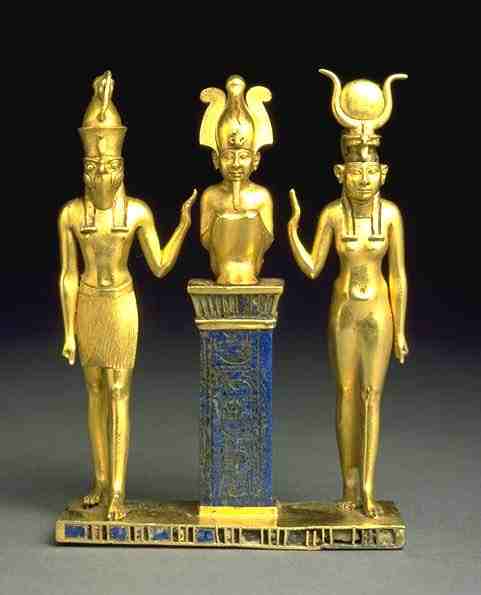
I wasted no time when the microphone was handed to me.
Why do we state that there are three individuals in God yet the teaching of the Trinity is not found in the Bible and was developed later, long after the apostles had died, with roots in other pagan religions at the time?
Brahma, Vishnu, and Shiva are the three figures in Hinduism that represent God.
Amun, a member of the Egyptian Trinity, currently appears as Osiris, Isis, and Horus.
When the Sh’ma (Deuteronomy 6:4) states unequivocally that “Hear, O Israel, the Lord your God is one,” I want to know why we say that God is a trinity. The Hebrew term echad, which denotes a single unit, is employed in this passage. What do you think of the later addition of 1 John 5:7-8, which was omitted from the original manuscripts, to the Bible? This was the submission I made that made a fuss.
The pastor skillfully sidestepped the subject with a brief comment, as I had anticipated.
After church, as I was leaving, I heard my father yelling bitterly at the preacher, “My son believes he knows everything.” I was very interested in that section. I also dreaded returning home while on vacation. I had a dismal, uncomfortable, and gloomy feeling at home since I had a different perspective on the bible than what I had been taught growing up. At one time, my father alleged that I had joined a cult. In my brain, I chuckled.
Additionally, he advised me to read more slowly and that I was reading too much. He often reminded me that although our pastors are far more knowledgeable than I am, they do not flaunt it.
I am confident that at this time in my life, I had stopped believing. I didn’t consider myself a follower of the Hebrew Roots movement or a Christian. Later, my studies had shown how much Judaism borrowed from other religions. I didn’t want to punish myself by sitting through sermon after sermon because I scarcely felt at home at church. I stopped attending church, praying, and reading the Bible. I wasn’t persuaded that the bible was actually God’s word. It smelled like too many flaws.


A short while later, around February 2017, I was a closeted atheist.
In the end, my father was correct when he informed me that he had observed my withdrawal from the church, the community, and the faith. Even more so considering that the church officials perceived me as a “threat” to other Christians, I wanted to assure him that it wasn’t deliberate. A short while later, around February 2017, I was a closeted atheist. My lack of belief in the god of the bible or any other gods was only known to a small number of my closest acquaintances. I made my position known up front as soon as possible.
I felt the decent thing I could do was to inform my girlfriend that I was now an atheist.
I felt the decent thing I could do was to inform my girlfriend that I was now an atheist. She was the first person I informed because first we met each other over discussions about the faith. She also subscribed to the Hebrew Roots Movement after being a Christian for some years. We studied the scriptures together; she encouraged me in things of the faith. We were even about a year from getting married. The honest thing I could do was let her know what was happening to me. I called her and informed her that I was no longer a believer. As expected, she was confused and shocked. She told me it was not true I didn’t believe anymore. But after a long heart-breaking conversation she broke up with me on the basis that she can’t live under the same roof with someone who does not believe in Abba (Aramaic for father, in this context referring to God of Israel). I told her I still loved her, the only thing that had changed was that I don’t believe the things I used to believe. She wouldn’t have any of that. She couldn’t be with me. I had to respect her decision. She started treating me differently from there on.

Many of the relationships I had after that either didn’t last because the woman preferred to be with a religious person, or they didn’t start because she was uncomfortable with my lack of belief.
At the Air Force Base where I performed my National Service, I had yet another experience that terrified and frightened me and confirmed the self-righteous, conditional love of religion.
In the department where I was posted, one of the senior officers really liked me. He liked discussing current events. He almost always asked me for my opinion on something when he invited me to his office. He learned that I was an atheist during one of our talks, which piqued his attention and caused him to get closer to me. It seemed me being an atheist troubled him so much because he bluntly announced to me that he would make it his personal responsibility to convert me to Christianity.
Recently, a few comments have asked me to explain whether my narration so far about MY LAST DAYS IN THE CHURCH is fictional or true.
Thankfully, I nearly said thank God, I kept a journal from the time I attended Presbyterian Boys Secondary School until about the year 2018, when I quit. I started journaling in a fresh foolscap notebook once my initial one became filled. I bring this up because at this point, practically all of my life’s events were documented in my journal.
My journal details my interaction with the officer.


I simply said, “If god exists, I struggle to see the evidence for his existence.” This could mean that God didn’t care and didn’t want me to know whether or not he existed. However, even if he did, that doesn’t mean I have to worship him, just as I wouldn’t have any respect for a sadistic leader.
He responded to this by saying, “If you were my son, I would have slapped you,” while still grinning but being firm.
There are hundreds of cases of hostility that pushes me further away from religion and makes me regret being one and acting as one.


You might be wondering what I am now. I don’t consider myself to be religious. I don’t follow any one religion or practice. In the religious sense, I have no idea what is typically referred to as supernatural, God, miracles, etc. When I say I have no idea, I mean that, in my opinion, these things have no bearing on my life. I don’t concentrate on these ideas while I go about my daily activities. I reject religion. I don’t think there are any gods. I lack the belief that there are gods, and those who assert that God exists don’t persuade me that he does. I emphasize this because there is a distinction between stating that one does not believe God exists and believing that he does not exist.
The first one means I am not convinced by the claims presented for god’s existence. The second one means I know that God cannot exist based on whatever reason. It would be madness for me to claim that God does not exist. How would I even prove that?

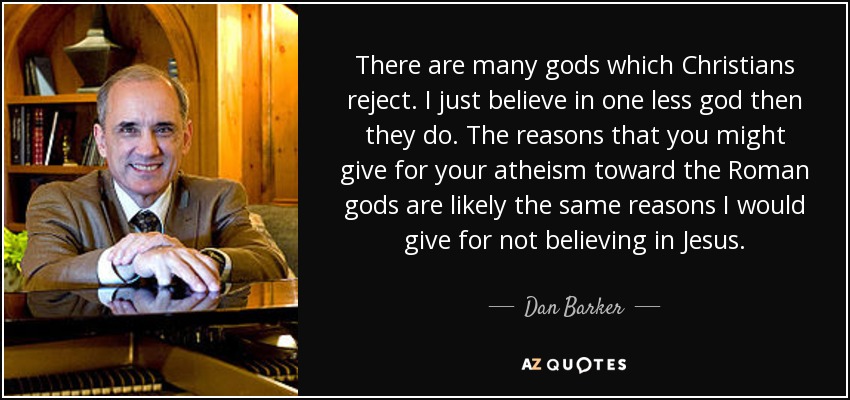
The devout may be asking themselves thousands of questions right now. How do you spend your life if you don’t believe in God? What is the source of your morality? Who do you pray to when you’re depressed?
We may get lost in a rabbit hole of opposing philosophies, but I’d be happy to have lunch with you about it someday.
This discussion requires a chat over lunch because, when you ask me what I believe, you might put me in a situation of providing unending responses. The question, “What do you believe in?” is invalid if you mean, “Do I believe in any kind of god or spirituality?”
I just dedicated two posts to clarify this. But you have to believe in something, I am usually told. No, I don’t have to believe in something. If I have to, I will make things up even when there is nothing to believe. When I don’t know, I will try my possible best to acknowledge that I do not know rather than invent something to hold on to.
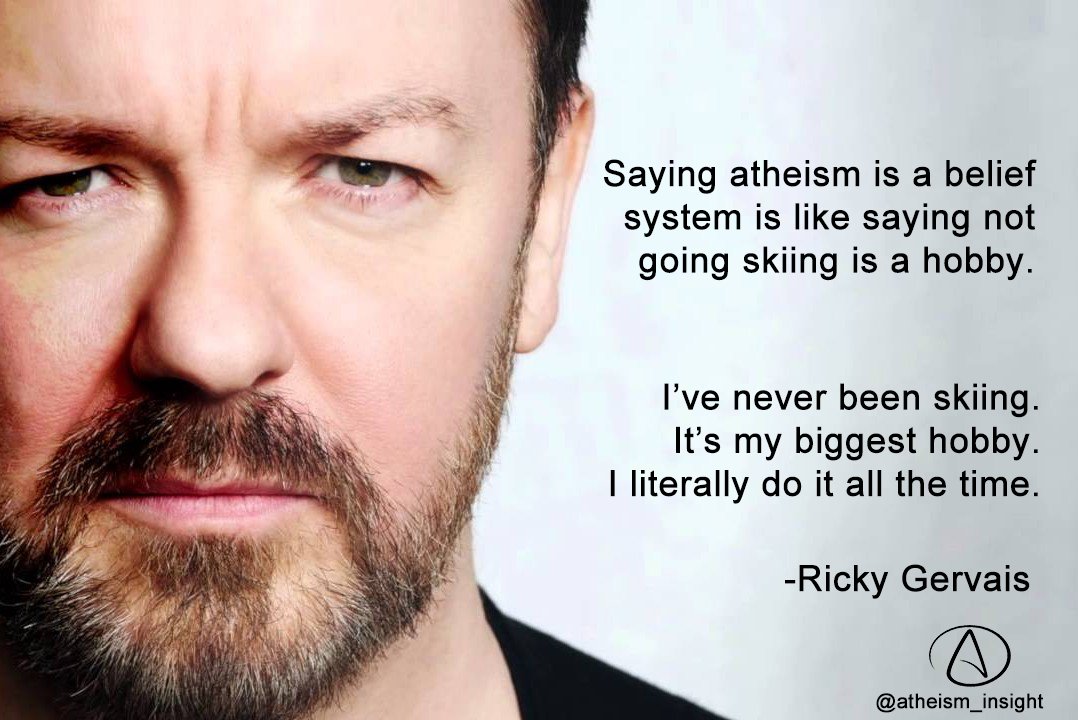
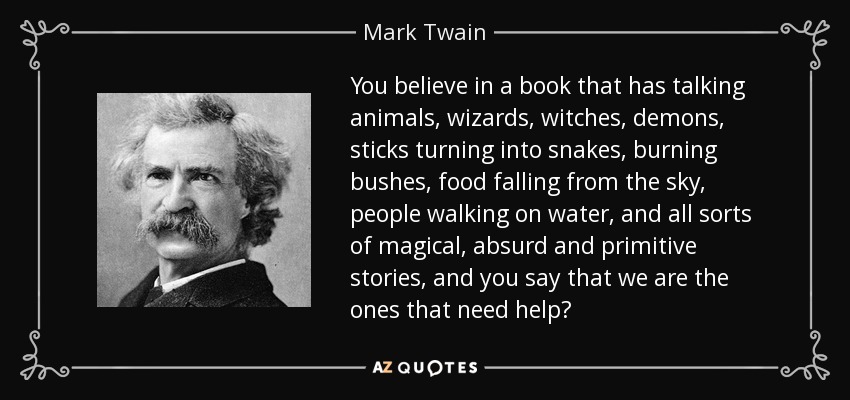
Atheism - Existence Analogy
The following conversation might not do so much justice about what I believe but it might clearly explain the situation surrounding my atheism.
A: Do you think cars exist?
B: No, I don’t think cars exist.
A: So what kind of car do you believe in?
B: I don’t believe cars exist.
A: But you have to believe in some kind of car. Then how do you move from one place to the other?
B: I use aeroplanes, trains, motorbikes, etc.
The lack of belief in the existence of cars doesn’t mean there can’t be other means of transportation. I am also not claiming that cars don’t exist (this is why I said this example might not do so much justice because we know what a car is and have evidence for it). Religious folks are telling me that I can’t move from one place to another without a car. But I have been moving from one place to the other by aeroplanes, trains, motorcycles, etc.
Do I miss being religious? Definitely not the aspects that made me unintentionally homophobic, self-righteous, or inconsiderate towards other people of different faiths or identities. But I surely miss the sensationalism and camaraderie that religion has carved a special niche for. Oh, and I also learned how to play the recorder, mouth organ, and accordion while I was a Christian.


What’s next in Peter’s Box? ¡Hasta luego amigos!






Hmm 🤔
Hello dear, I see you have a question.
Haha. Nailed this one perfectly.
We can call it a perfect crucifixion then. 😄😉
Well, its an interesting piece but I think is something you’ve observed but I don’t see you trying to say there is no God but have issue with the bible. No where in your pieces disbelief the existence of God just that you have issue with some contradictions, historicity. But I didn’t see you disputing the existence of God. So come again bro. And I’m sure it will be in the p2.
Congratulations, bro. You summed up my viewpoint quite well. I am impressed. Part two is what you just read though. You are correct; I am not claiming that there is no God. I just believe that those who claim he does have not persuaded me otherwise.
For instance, if I hadn’t told you about it, it would be absurd or delusional of you to claim that I had a green square dog beneath my bed. This implies that it is your responsibility to provide evidence that I do have a green square puppy beneath my bed.
Additionally, you would go about your day unconcerned if I hadn’t claimed to have a green square dog under my bed. What is the purpose of informing me that I have no green square dog under my bed if you are unaware that I have a green square dog under my bed? If, on the other hand, I told you about the green square dog under my bed and you asked for proof, it is my job to supply it. What was the point of telling you I have something I cannot verify if I then turn around and declare that you are the one who must prove that I do not have a green square dog?
Finally, once I take you to my room to prove my claim, you will leave there believing or doubting that Peter keeps a green square dog beneath his bed. You will have doubts if what I show you does not resemble a green square dog in the least. That’s a reasonable stance to adopt. That’s when you’d start asking me questions regarding the evidence I was presenting. “Peter, what you are showing me does not look green,” you would tell me. It appears to be blue. It is also round rather than square.’ That is my perspective on the Bible. Not all of the assertions about God are supported.